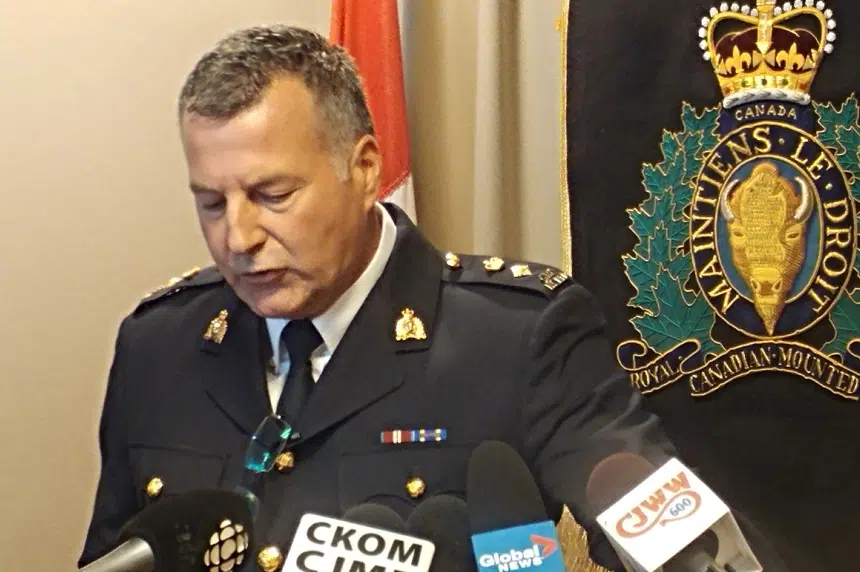Saskatchewan RCMP are telling rural residents to lock up, put their guns away and allow the police to do their jobs.
Superintendent Mike Gibbs and Kris Vibe held a press conference Thursday at the Saskatoon RCMP detachment in an effort to ease public fears and clear the air on rural crime.
RCMP told reporters property crime reports were up in rural areas, but officers were not able to provided specific numbers that would indicate exactly how much of an increase there has been.
Gibbs did say a “significant number” of these crimes were a result of items not being locked away or being easily accessible.
He noted the statistics are shared with local governments and action is taken.
“While we might long for the days when we didn’t have to remove our keys from our vehicle or lock our fuel tanks, those days are unfortunately gone,” he said.
Some residents have reportedly taken to keeping guns in their trucks and combines in rural areas to protect themselves against intruders.
Gibbs warned that this wasn’t a safe practice, as preparing for a confrontation can be dangerous for everyone.
“We don’t want the wild west,” he said. “Call the police, let us do our jobs.”
Part of the concern from the public stems from the lack of presence when it comes to RCMP patrols in rural areas.
Gibbs noted that members have a lot of ground to cover and have to prioritize situations.
“We sort of triage, not unlike the hospital,” he said. “Unfortunately it does take some time, but we aim to get to every call in a timely manner based on what’s going on.”
RCMP also faced several questions on the vacancy rate within F Division.
Supt. Vibe maintained that when accounting for unfilled positions, paid leave and training, the official vacancy rate in Saskatchewan is at 3.3%.
Mounted Police Professional Association’s Rob Creasser told John Gormley Live earlier this month that members tell him the rate is closer to 25%.
Other anonymous members have echoed those numbers.
Vibe said that perception can be traced back to so-called “perfect storms” of staffing issues, including paid leaves and training sessions.
“Those positions continue to draw salaries,” he said. “We can’t fill them.”
Asked if more money was needed to make sure staffing levels were adequate across the board, Vibe said “I can’t give my opinion, it isn’t relevant.”
Vibe was also asked if, after of 40 years of women being allowed in the force, there were discussions of creating a policy to temporarily replace those who opt for maternity leave.
“That’s up to the contractor,” he said, referring to the province.
Premier Brad Wall suggested last month that if regional municipalities want more policing, they’ll have to pay for it.











